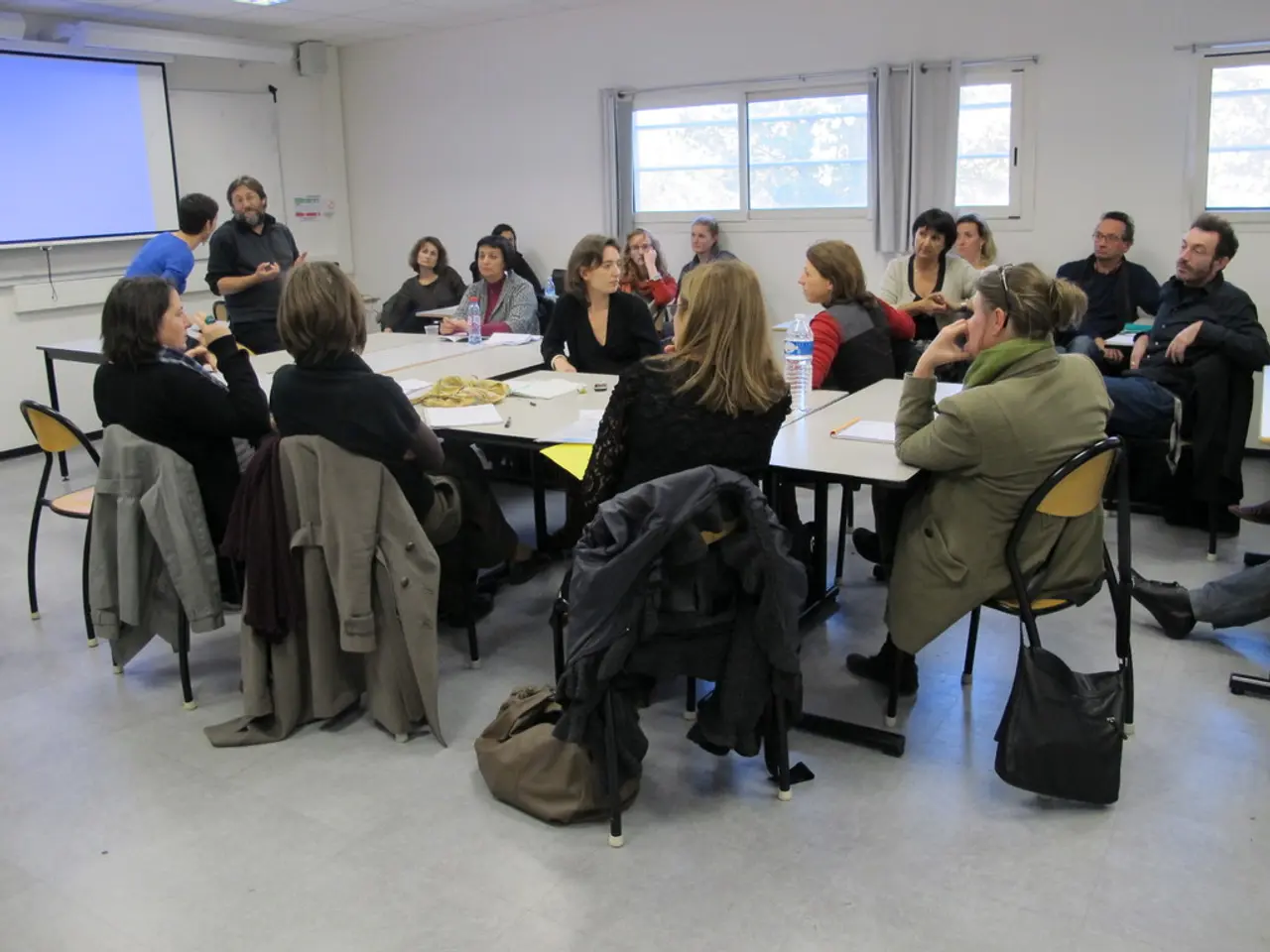Instructions for Interview Breakdown and Evaluation
Focus group interviews have become a valuable tool in the researcher's arsenal, offering a unique and engaging method to delve into the attitudes, preferences, and beliefs of a diverse group of participants. In this article, we explore the benefits, best practices, and challenges of conducting focus group interviews.
The Focus Group Experience
At its core, a focus group interview is a gathering of a small group of participants, usually between 6 and 12 individuals, who come together to discuss a specific topic. The moderator, a skilled facilitator, plays a crucial role in guiding the discussion, ensuring all participants have the opportunity to contribute, and keeping the focus on the research topic.
After a warm-up phase, the moderator moves on to the key questions aligned with the research objectives. The interaction between participants, flexibility, efficiency, and exploration of social dynamics make focus groups a preferred choice over other survey methods, such as individual interviews.
Preparing for Success
Successfully conducting focus groups involves several strategic steps. First, the research objective must be clearly defined. This sets the stage for the session, ensuring all participants understand the purpose and behavior expectations.
Next, a discussion guide is developed, outlining the questions and topics to be covered during the session. Careful consideration is given to the selection of participants, aiming for a balanced group that encourages equal participation and avoids dominance by one or a few individuals.
The moderator, an experienced communicator with strong listening and questioning skills, is prepared to manage group dynamics, encourage quieter members to speak, and probe for deeper insights while remaining neutral and objective.
Best Practices for Moderating a Focus Group
The best practices for moderating a focus group interview in qualitative research include setting clear guidelines and objectives, screening participants carefully, choosing an experienced moderator, using open-ended and probing questions, managing group dynamics effectively, considering remote or virtual moderation if appropriate, recording and documenting thoroughly, and maintaining neutrality and fostering trust.
By adhering to these practices, focus group data can be rich, reliable, and ethically collected, supporting the qualitative research goals effectively.
Overcoming Challenges
Focus group interviews present researchers with challenges like managing group dynamics, groupthink, moderator bias, and logistical challenges. The moderator must skillfully manage group dynamics to ensure balanced participation and prevent any participant from dominating the discussion.
Non-verbal communication, such as body language and facial expressions, can also be observed during focus group interviews, providing additional insights into participants' reactions and emotions.
Combining Methods for Comprehensive Insights
Focus group interviews can be used in conjunction with other qualitative data collection methods, such as individual interviews or surveys, to provide a comprehensive and in-depth insight into participants' attitudes, preferences, and beliefs.
As the discussion winds down, the moderator should summarize the main points discussed and ask participants if anything important has been overlooked. The recorded discussion is then transcribed and analyzed, with the focus on identifying key themes, patterns, and insights that emerge from the conversations.
In conclusion, focus group interviews offer a valuable method for researchers to gain a deep understanding of their participants' perspectives, attitudes, and beliefs. By following best practices and being mindful of potential challenges, focus groups can provide rich, reliable, and ethically sound data to support qualitative research goals.
In the process of conducting focused interviews, it's essential to consider personal growth and self-development, as the moderator needs to be an effective communicator with strong listening and questioning skills. Additionally, education-and-self-development is essential for the moderator, as they need to understand and manage group dynamics, encourage participation from every member, and probe for in-depth insights while maintaining neutrality.
The selection of participants also plays a vital role in the success of focus group interviews, as they aim for a balanced group that encourages equal participation and avoids dominance by one or a few individuals, fostering a learning environment that facilitates research objectives.




